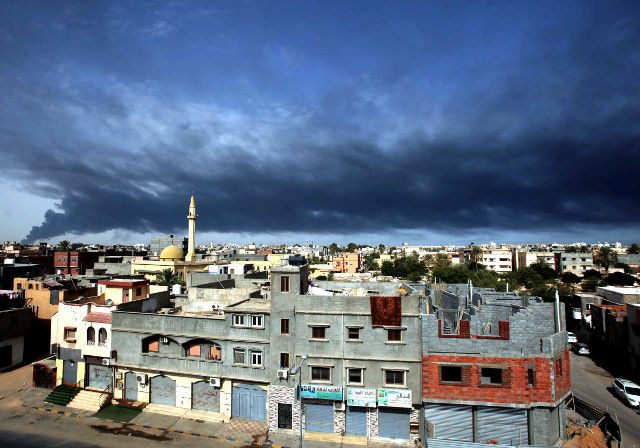SUMMARY
This is AI generated summarization, which may have errors. For context, always refer to the full article.

MANILA, Philippines (UPDATED) – More than 200 Filipinos backed out of the Philippine-funded evacuation from Libya, the Department of Foreign Affairs (DFA) said Wednesday, August 13, as a chartered ship was set to bring them out of the strife-torn country.
The DFA said 258 Filipinos withdrew their request to be evacuated from Libya through a chartered ship for which the Philippine government paid P78.2 million ($1.8 million*). (READ: Repatriating Filipinos in Libya could cost P169M)
Earlier, the DFA said 1,100 Filipinos had signed up for sea evacuation.
This means close to one-fourth of these Filipinos backed out.
Quoting Philippine embassy officials, DFA spokesman Charles Jose explained, “The numbers went down because over a hundred employees who registered for mass repatriation were sent home at their company’s expense.”
“Let’s wait and see how many will actually appear on boarding day,” Jose said in an earlier text message.
Jose said the chartered ship from Malta was set to pick up Filipinos in Benghazi on Wednesday, and in Misrata on Thursday, August 14, after the trip was delayed due to refueling problems.
The ship will be back in Malta by Friday, August 15.
Up to 1,625 Filipinos from Libya have returned to the Philippines as of Tuesday, August 12, the DFA said.
This is equivalent to 12.5% of the 13,000 Filipinos in Libya before the Philippines began repatriating its nationals.
Libya has suffered chronic insecurity since dictator Moammar Gaddafi was overthrown in 2011, with the new government unable to check militias that helped to oust him. The new government has also been facing a growing threat from Islamist groups.
‘What’s in store for OFWs?’
Despite the unrest, Jose said thousands of Filipinos choose to remain in Libya because of fear of joblessness in the Philippines. (READ: Filipinos in Libya: We can survive war, not joblessness)
“They would rather take the chance. They think they have a greater chance of surviving the war, rather than surviving the uncertainty of being without any work here,” Jose said.
The Philippine Department of Labor and Employment promised to assist the repatriates from Libya by offering a package that includes a one-time grant of P10,000 ($229).
Senator Sonny Angara, vice chair of the Senate committee on foreign relations, challenged the government on Wednesday to also ensure jobs for these returning overseas Filipino workers (OFWs).
“What is in store for our OFWs that could cushion the impact of the loss of employment and income capacity upon their repatriation? We’d like to find out how the government intends to help these returnees find new jobs or other means of livelihood,” Angara said in a statement.
“Clearly, the more effective way of convincing our OFWs to repatriate is to give them assurance that they would not be jobless here at home – that there is a comprehensive reintegration assistance and services program that would address their welfare, employment and livelihood needs,” he added.
The 13,000 Filipinos originally in Libya comprised around 0.59% of the total of 2.2 million Filipinos forced to work abroad, as of 2013, largely due to the lack of jobs in the Philippines. (INFOGRAPHIC: Getting to know the OFWs) – with reports from Agence France-Presse/Rappler.com
Add a comment
How does this make you feel?
There are no comments yet. Add your comment to start the conversation.